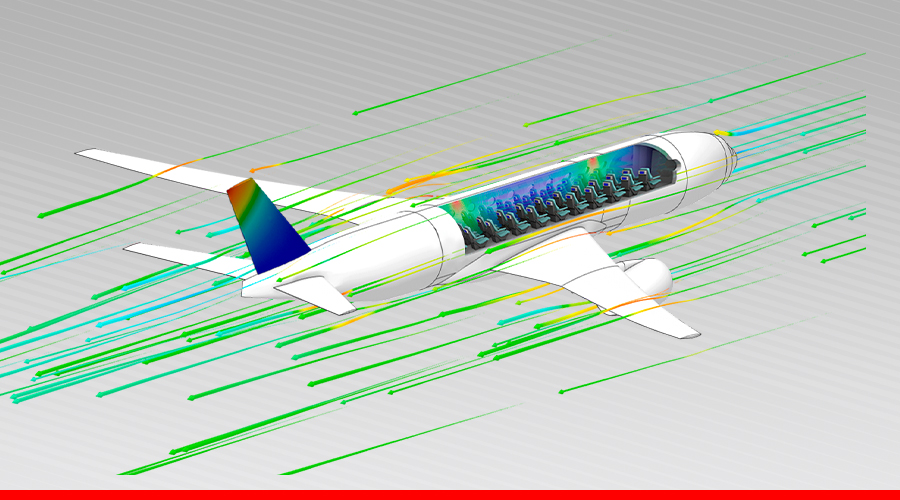
-
01 - CAE: Introduction
-
02 - CAD: Geometry Creation and preparation for simulation
-
03 - FEA: Structural Analysis using Finite Element Method
-
04 - CFD: Flow Analysis using Computational Fluid Dynamics
-
05 - EMAG: Electromagnetic Analysis
-
06 - DEM: Particulate Material Analysis
-
07 - Special Topics of CAE Universe
-
Final Considerations
Description
This free course is a courtesy of the ESSS Institute for you who want to start your journey in the computer simulation universe.
Computer Aided Simulation (CAE), is a tool that helps companies in the engineering sector in the development and improvement of products. With computer simulation, professionals can perform different analyzes - structural, fluid, thermal, electromagnetic, acoustic, among others - that provide benefits such as cost and time reduction in project development, increased productivity, ease of detection of errors and help in identifying solutions. In this course, an overview of the physics that can be studied through CAE and its main applications in the industry is given. Being an engineer capable of working with computer simulation is a differential and provides new opportunities in the job market.
Level: Basic
Prerequisites: None
Access period: 180 days
Software used: Ansys
To perform the proposed exercises, we suggest using the free educational license of the Ansys package (Ansys Student). Download and installation can be done at any time directly from the Ansys website.
Category: Multiphysics
General info
Content
- CAE: Introduction;
- CAD: Geometry Creation and preparation for simulation;
- FEA: Structural Analysis using Finite Element Method;
- CFD: Flow Analysis using Computational Fluid Dynamics;
- EMAG: Electromagnetic Analysis;
- DEM: Particulate Material Analysis;
- Special Topics of CAE Universe.
Objective
To present the fundamental concepts of computer-aided engineering, with practical examples that illustrate the most diverse applications.
Target audience
Industry professionals, students, and academic professors interested in starting or improving their knowledge of simulation techniques.
Methodology
The student has flexibility to attend the training at the most appropriate time of their daily journey during the active access period. The videos, texts and exercises were previously prepared, reviewed and structured, allowing the best asynchronous use.
Certificate
After the full completion of the course, the student has access to an international certificate, in electronic format, proving the completion of the course with the total hours attended. The certificate is issued by the ESSS Institute, which is a world reference in the subject of Computer Simulation. ESSS guarantees the quality of the course through its experience and recognition as a reference in Computational Simulation.
Feedback
Sikhumbuzo Netnou
Director
This course is going to benefit me to improve the project I'm about to start. Biodiesel refineryPrakash J Vaghela
CAE Fundamentals
it's good course for beginners.Subscribe now
Subscribe now Free